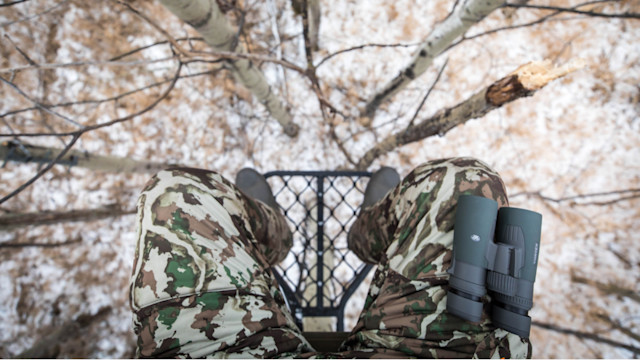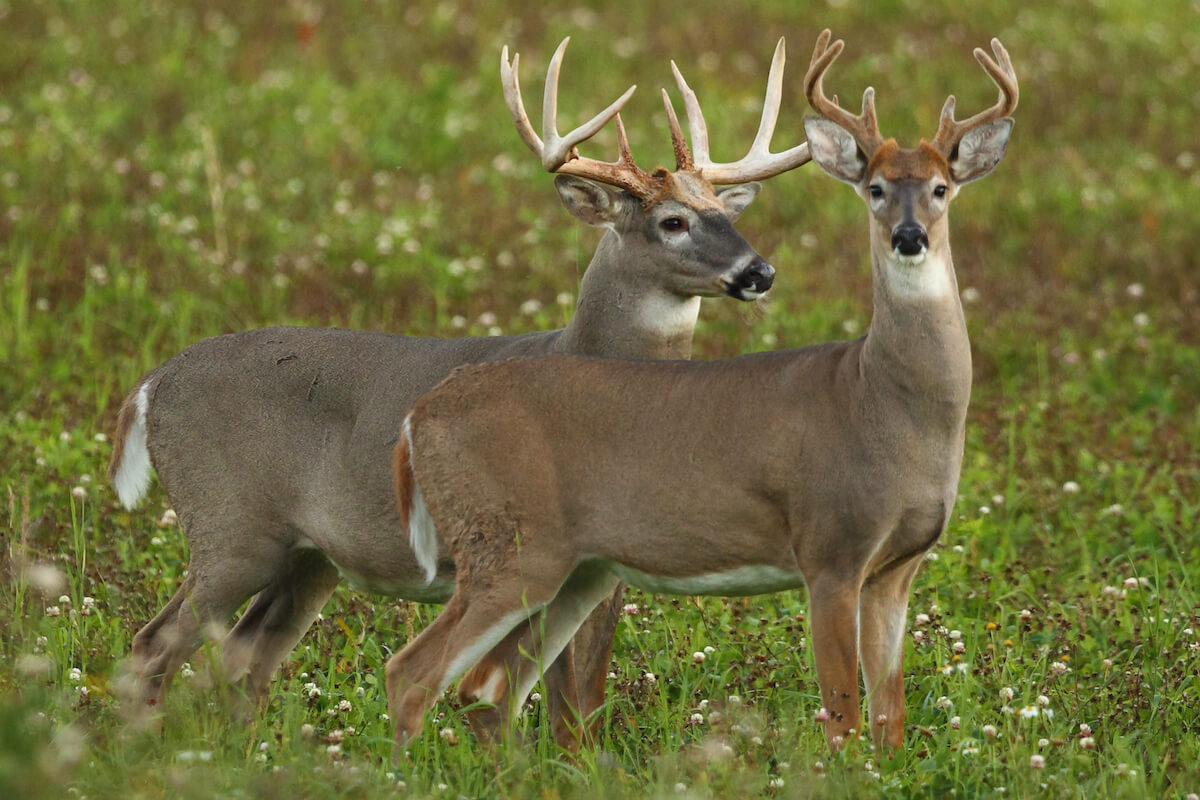To ruin a deer hunt, make a lot of noise and move around too much. A successful deer hunt requires stillness and quietness, so avoid doing anything that disturbs the natural environment.
Deer hunting requires patience, attention to detail, and a steady hand. It’s a popular activity among hunters and enthusiasts, but hunting deer can also be a challenging endeavor. Whether you’re an experienced hunter or a novice, there is always room for improvement and learning new techniques. However, many hunters make the common mistake of disturbing the natural environment during the hunt.
This can result in the deer becoming alerted and fleeing the area, ruining the hunting experience altogether. In this article, we’ll explore some common mistakes to avoid when deer hunting and how to ensure a successful and enjoyable hunt.
Contents

Lack of preparation before the deer hunt can jeopardize your chances of success. Poor scouting is one of the reasons hunters fail. Insufficient knowledge of the terrain and animal behavior leaves them ill-equipped and in the wrong spot. In addition, many hunters are unfamiliar with their equipment, rendering them impotent.
To maximize chances of catching a deer, hunters must engage in physical and mental preparation. Omitting these can lead to mistakes and mental breakdowns on the day of the hunt. It’s important to train your body and mind to handle challenges.
Hunting is a risky sport, so hunters must train to tolerate the mental and physical strains that come with the sport. Proper preparation is essential if you want to walk away with a prize catch.
Inappropriate Hunting Techniques
Inappropriate hunting techniques can easily ruin a deer hunt. Misunderstanding deer behavior, for instance, is a common occurrence. Hunters need to understand their quarry before making any moves. Poor stand placement is another issue that can ruin a hunt. A hunter should carefully select a spot that is conducive to spotting deer.
Overcalling and undercalling are also detrimental to a successful hunt. A hunter should use calls sparingly, and when necessary. Calling too much or too little can spook the deer. Therefore, to avoid ruining a deer hunt, hunters need to master the art of patience and caution.
Insufficient attention to cover scent can easily ruin a deer hunt. Poor hygiene is one of the culprits, as the human scent can quickly get on your gear. Inappropriate hunting clothing is another common mistake, as some materials may retain odors.
Improper use of scent elimination products also poses a risk, as too little or too much can throw off the animal’s sense of smell. To prevent deer bites, hunters can take additional steps, such as washing their clothes with scent-free detergents and storing them in scent-proof containers.
Overall, paying attention to cover scent details can make a significant difference in the outcome of a successful deer hunt.
Failure To Understand Hunting Regulations
Inadequate knowledge of hunting regulations is a common mistake that can ruin a deer hunt. Not knowing the seasonal hunting regulations, the protected species, the prohibited areas and the allowance of hunting equipment can lead to serious consequences. Illegal hunting techniques such as baiting, spotlighting and shooting from a vehicle are also prohibited and can result in hefty fines and legal action.
Unethical hunting behaviors such as not shooting an animal with a quick, lethal shot or trespassing on someone’s land can lead to a poor reputation within the hunting community and negative environmental impact. Being mindful of hunting regulations, practicing ethical hunting behaviors and using legal hunting techniques can ensure a successful and enjoyable hunting experience.
Hunting With A Lack Of Patience Or Persistence
It’s easy to ruin a deer hunt by not having patience or perseverance. Impulsive behavior can also destroy the hunt. Lack of knowledge about deer tracking techniques is another factor. When you don’t have patience, you’re more likely to give up and leave.
Being persistent is key in hunting. Don’t give up too quickly or easily. Impulsive behavior can scare away deer and ruin your chances of success. Lastly, knowing about deer tracking techniques will help you become a better hunter. Follow trails of droppings, bedding areas, and rubs.
Don’t rush in and scare away the deer. Be patient, persistent, and knowledgeable for a successful hunt.
Frequently Asked Questions For How Do You Ruin A Deer Hunt?
How To Avoid Ruining A Deer Hunt?
To avoid ruining a deer hunt, scout the area ahead of time, learn the behavior of the deer, choose appropriate attire and equipment, and minimize movement and noise during the hunt.
What Are The Common Mistakes Made During A Deer Hunt?
Common mistakes during a deer hunt include being unprepared or under-equipped, not scouting the area ahead of time, making too much noise or movement, and not understanding the behavior of the deer.
How To Deal With Spooked Deer During A Deer Hunt?
If you spook a deer during a deer hunt, remain calm and still, observe the deer’s behavior, and wait patiently for the deer to return. Avoid making any sudden movements or noises that could scare the deer further.
What Are The Best Hunting Techniques To Use During A Deer Hunt?
The best hunting techniques to use during a deer hunt include setting up tree stands or blinds in strategic locations, using scent blockers and attractants to lure deer, and using calls to mimic deer vocalizations and draw them closer.
Are Humans at Risk of Being Bitten by Deer While Hunting?
Deer bites human facts are quite rare, making the risk of being bitten by deer while hunting quite low. However, in extremely rare cases, if a deer feels threatened or cornered, it may resort to biting as a defensive measure. Nevertheless, hunters can minimize this risk by maintaining a safe distance and respecting the animal’s space.
Conclusion
Ruining a deer hunt is often a result of poor planning, lack of patience and discipline, insufficient hunting gear and equipment, and inadequate knowledge of the deer’s habits and habitat. It is also essential to have an understanding and appreciation for the animal, as hunting is not just about the kill but also about the experience and connection with nature.
To improve your hunting success, take the time to study the area you will be hunting in, invest in quality gear and equipment, and develop your hunting skills through practice and education. Wildlife management and conservation efforts are also critical to ensure the sustainability of deer populations for future generations to enjoy.
By following these guidelines, you can avoid ruining your next deer hunt and instead, have a successful and memorable experience in the great outdoors.

